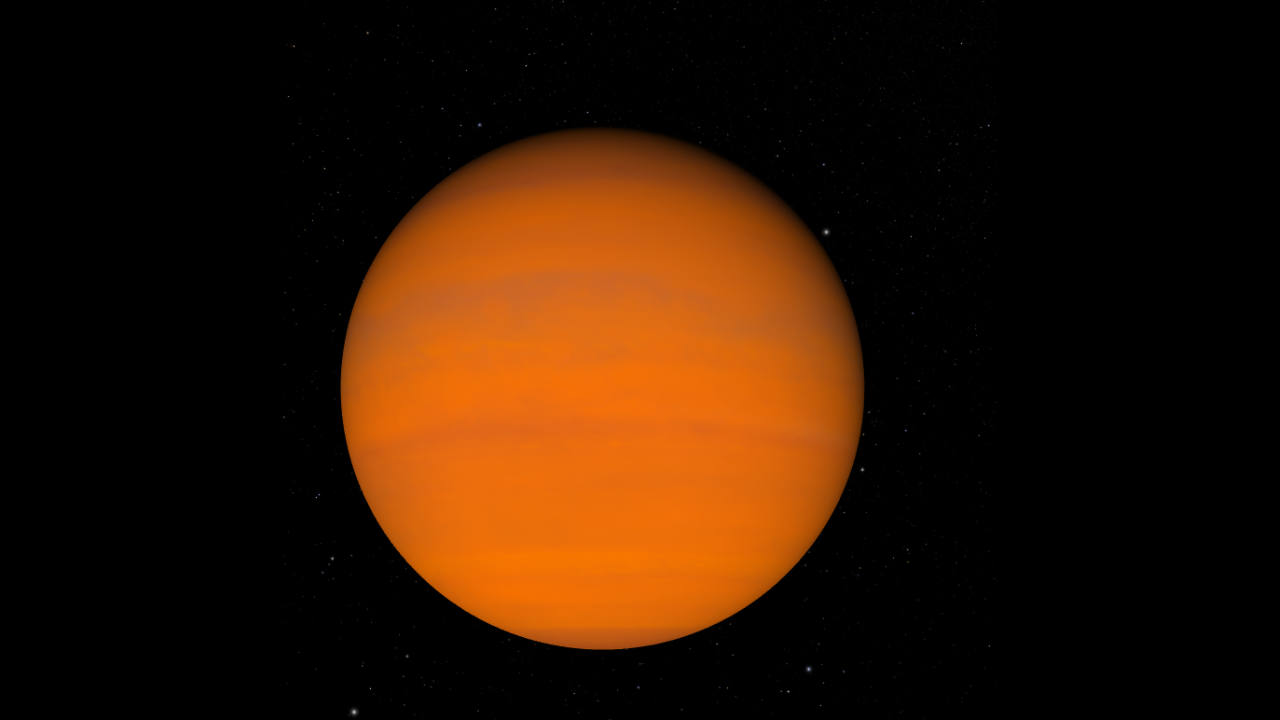In a groundbreaking discovery, astronomers have identified a new planet, dubbed WASP-193b, which, despite being larger than Jupiter, possesses a density so low that it has been likened to cotton candy. This remarkable finding was reported by an international team of researchers, shedding light on the unusual properties of some exoplanets.
WASP-193b stands out due to its exceedingly low density for its immense size, setting it apart from the denser gas giants like Jupiter, Saturn, Uranus, and Neptune in our solar system.”The planet is basically super fluffy because it’s made mostly of light gases rather than solids,” explained lead author Khalid Barkaoui of the Massachusetts Institute of Technology.
The significance of WASP-193b extends beyond its unique physical characteristics. Scientists view it as an ideal subject for studying unconventional planetary formation and evolution. The insights gained from this exoplanet could challenge existing theories and deepen our understanding of planetary dynamics.
Located approximately 1,200 light-years away from Earth, where a light-year equals about 5.8 trillion miles, WASP-193b was confirmed last year. However, it required additional time and extensive observations using ground telescopes to determine its peculiar consistency, believed to be primarily composed of hydrogen and helium.
This research, recently published in Nature Astronomy, marks WASP-193b as the second-lightest exoplanet discovered to date based on its dimensions and mass. This discovery underscores the diversity and complexity of planetary bodies in our galaxy, expanding the horizons of exoplanetary science.
WASP-193b stands out due to its exceedingly low density for its immense size, setting it apart from the denser gas giants like Jupiter, Saturn, Uranus, and Neptune in our solar system.”The planet is basically super fluffy because it’s made mostly of light gases rather than solids,” explained lead author Khalid Barkaoui of the Massachusetts Institute of Technology.
The significance of WASP-193b extends beyond its unique physical characteristics. Scientists view it as an ideal subject for studying unconventional planetary formation and evolution. The insights gained from this exoplanet could challenge existing theories and deepen our understanding of planetary dynamics.
Located approximately 1,200 light-years away from Earth, where a light-year equals about 5.8 trillion miles, WASP-193b was confirmed last year. However, it required additional time and extensive observations using ground telescopes to determine its peculiar consistency, believed to be primarily composed of hydrogen and helium.
This research, recently published in Nature Astronomy, marks WASP-193b as the second-lightest exoplanet discovered to date based on its dimensions and mass. This discovery underscores the diversity and complexity of planetary bodies in our galaxy, expanding the horizons of exoplanetary science.
